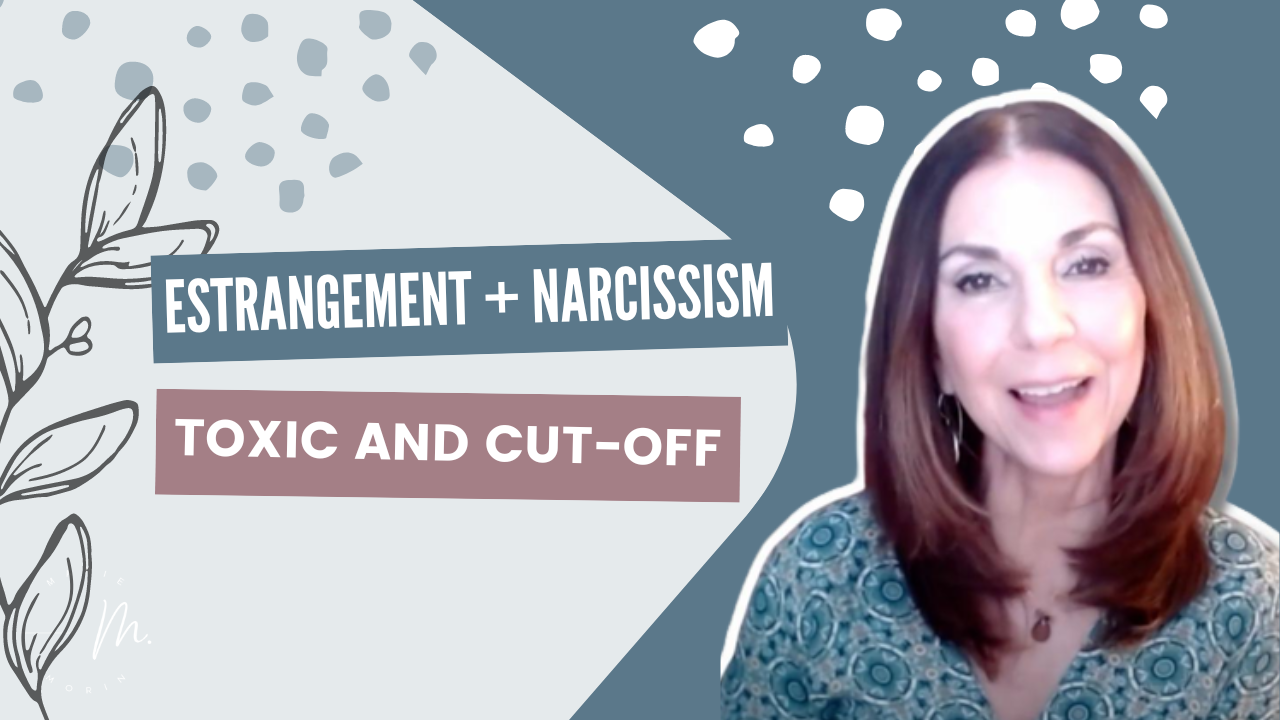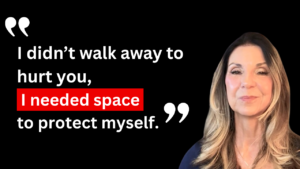The word “narcissism” has recently been circulating quite a bit in popular culture. Many adult children will chalk up their parent’s behavior to being “narcissistic” and a reason to cut off from them.
When discussing estrangement, it’s essential to learn what Narcissistic Personality Disorder is and is not, along with why narcissistic personality disorder and narcissistic traits contribute to adult-child estrangement.
This article discusses Adult Child Estrangement And Parental Narcissism (Toxic and Cut-Off).
What is Narcissism and Narcissistic Personality Disorder?
Narcissism refers to a preoccupation with oneself and one’s achievements, grandiosity, and a lack of empathy for others. Having some degree of self-confidence and pride in one’s accomplishments is normal, but extreme narcissism can interfere with healthy relationships.
Narcissistic personality disorder (NPD) is a mental health condition characterized by a pervasive sense of grandiosity, a constant need for admiration, and a lack of empathy for others. Individuals with NPD may struggle to maintain satisfying relationships, and their behaviors may mimic those of a selfish, thoughtless, and insensitive person.
According to the DSM-5, the symptoms of narcissistic personality disorder and its severity can vary. The criteria for NPD is to have five or more of the following symptoms:
- Have an unreasonably high sense of self-importance and require constant, excessive admiration.
- Feel that they deserve privileges and special treatment.
- Expect to be recognized as superior even without achievements.
- Make achievements and talents seem bigger than they are.
- Be preoccupied with fantasies about success, power, brilliance, beauty, or the perfect mate.
- Believe they are superior to others and can only spend time with or be understood by equally unique people.
- Be critical of and look down on people they feel are not important.
- Expect special favors and expect other people to do what they want without questioning them.
- Take advantage of others to get what they want.
- Have an inability or unwillingness to recognize the needs and feelings of others.
- Be envious of others and believe others envy them.
- Behave arrogantly, brag a lot, and come across as conceited.
- Insist on having the best of everything — for instance, the best car or office.
For various reasons, adult children may begin to estrange themselves from a parent with NPD or other narcissistic traits. For example, the parent may lack the ability to show empathy or take responsibility for their mistakes, leading to feelings of hurt or neglect from the child.
A narcissistic parent may also try to control aspects of their child’s life, such as their career or relationships, leading to frustration or resentment. It is essential to remember that not every self-centered or problematic behavior indicates NPD, and not all individuals with NPD are necessarily responsible for parental estrangement.
Learned Or Genetic?
The cause of NPD is not fully understood, but it is believed to be a combination of genetic and environmental factors. Some research suggests that NPD may be passed down from parents to children, while other studies suggest that it may result from early childhood trauma or a lack of secure attachments.
There is no single answer to whether NPD is genetic or learned. However, the research suggests that it is likely a combination of both.
Narcissism vs. NPD
Narcissism and Narcissistic Personality Disorder (NPD) are often used interchangeably but differ. Narcissism is a personality trait many people see, while NPD is a severe mental disorder requiring professional treatment.
Narcissistic people may be challenging, but they are not necessarily dangerous. On the other hand, people with NPD can be manipulative and abusive.
Narcissism is not a mental disorder. It’s a personality trait that exists on a continuum, with some people having more narcissistic traits than others. It is still possible that a parent with narcissistic characteristics is capable of abusive and toxic behaviors, but again, it is not one-size-fits-all.
Why NPD And Narcissism Contributes To Estrangement
Many factors can contribute to estrangement, but one of the most common is when the child feels that the parent is excessively narcissistic.
In these cases, the child may think they are constantly put on a pedestal, or their parent is always trying to one-up them. This can lead to the child feeling a sense of suffocation and a desire to distance oneself from the parent.
Narcissistic parents are often described as having conflicting emotions. On the one hand, they may express great pride and affection for their children.
On the other hand, they may subject their children to shame and humiliation. Narcissistic Parents can hurt their children. They may cause their children to feel unworthy and unloved. They may also hamper their children’s ability to develop healthy relationships.
These parents may also quickly anger and lash at their children, leading to emotional distance and estrangement. All of these factors create anxiety as opposed to safety and security. Due to the sometimes toxic and unpredictable nature of people with Narcissistic Personality Disorder, it is often necessary for the adult children of these individuals to cut off all communication and contact.
This is usually done to protect oneself from further emotional and mental abuse. While it may be difficult to sever ties with a parent or other family member completely, preserving one’s mental health and well-being is often necessary.
Moving Forward: How to Cope with Narcissism and Estrangement
For the adult child, there are a few things you can do to help yourself cope with narcissism and estrangement. It can be challenging to move forward if you have been the victim of narcissistic abuse.
You may feel alone and that nobody understands what you are going through. But it is important to remember that you are not alone. Others have been through similar experiences and can help you to cope with your pain.
First, it is essential to contact safe family members and friends who love and value you unconditionally. Second, consider seeking professional help from a therapist or counselor. These professionals can help you work through feelings and develop healthy coping mechanisms.
Finally, make sure to take care of yourself both physically and emotionally. This means eating a balanced diet, exercising regularly, and getting enough sleep.
For the parent, hearing that your adult child is estranged from you because they believe you are narcissistic can seem way out of left field and not make any sense to you. You may have displayed traits that would make you perceive they were a victim of narcissistic abuse. In these cases, it’s vital to seek help from a professional and honestly evaluate how your adult child might express that you have affected them if you are hoping for reconciliation.
Remember, being willing to validate your adult child’s perceptions is fundamental in moving towards any hope for repair.
Secondly, demonstrating you have changed, meaning if you have displayed any toxic behaviors, you take responsibility for them and behave in supportive ways. Maintaining self-care hygiene and taking care of yourself while dealing with estrangement are also crucial. Managing self-care and mental health will empower you to move towards healthy and fulfilling relationships.
Conclusion
Estrangement is very complex, and with the addition of narcissism and NPD, it becomes even more tangled. Narcissism and NPD are increasingly popular topics and have much to do with why adult children say they are estranged. For anyone, suffering abuse from a person with NPD or narcissistic traits is undeniably painful and can have long-lasting effects on the victim and ultimately lead to estrangement. However, not every toxic behavior and mistake a parent displays can be considered narcissistic. This article discusses Adult Child Estrangement And Parental Narcissism (Toxic and Cut-Off).









